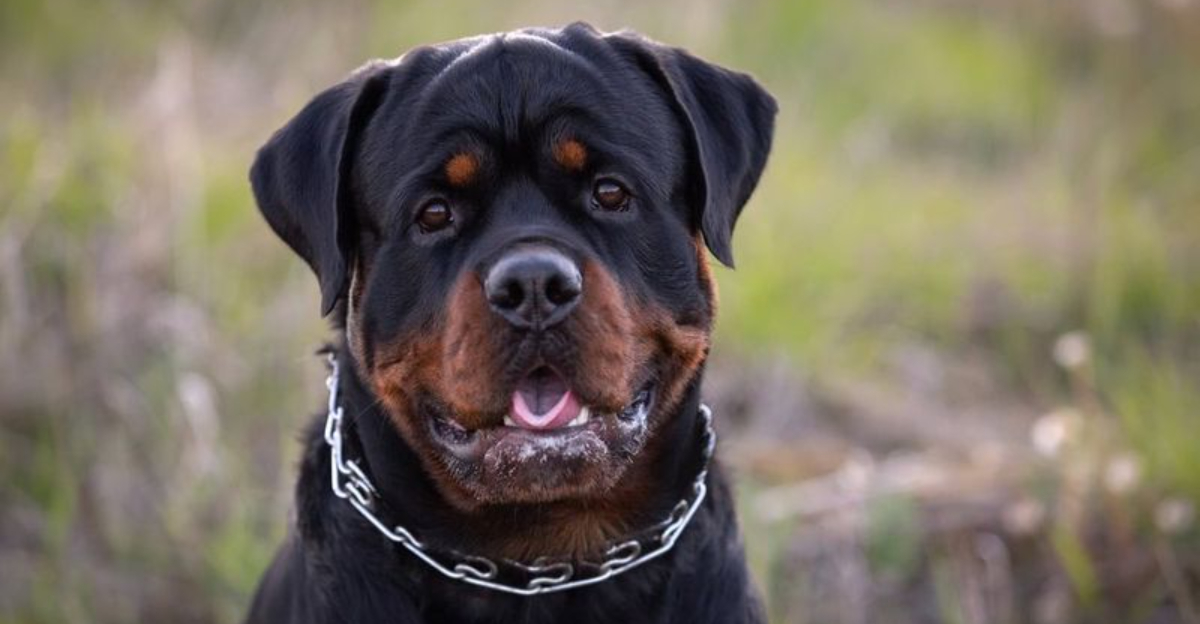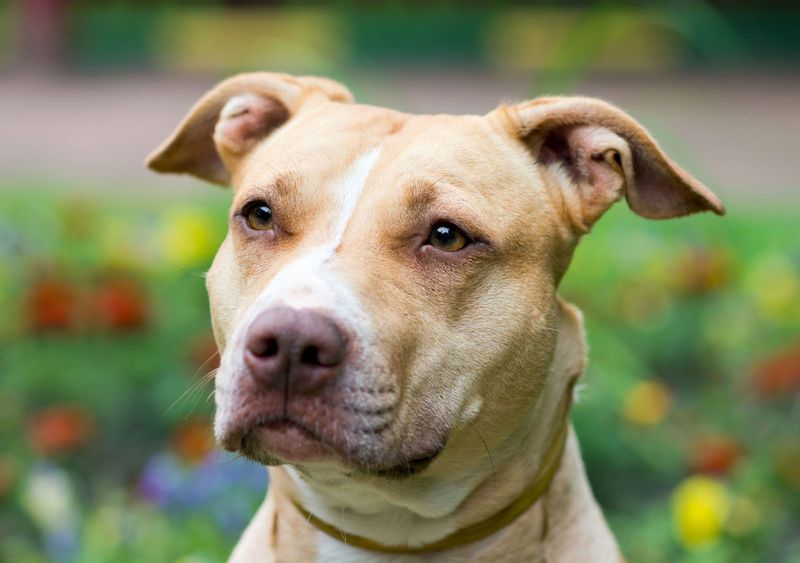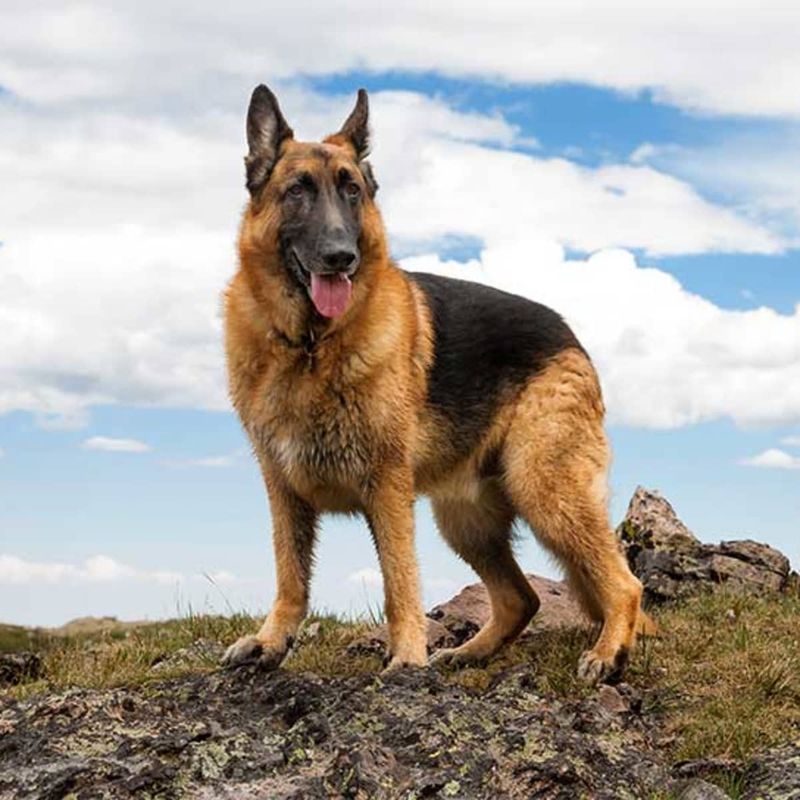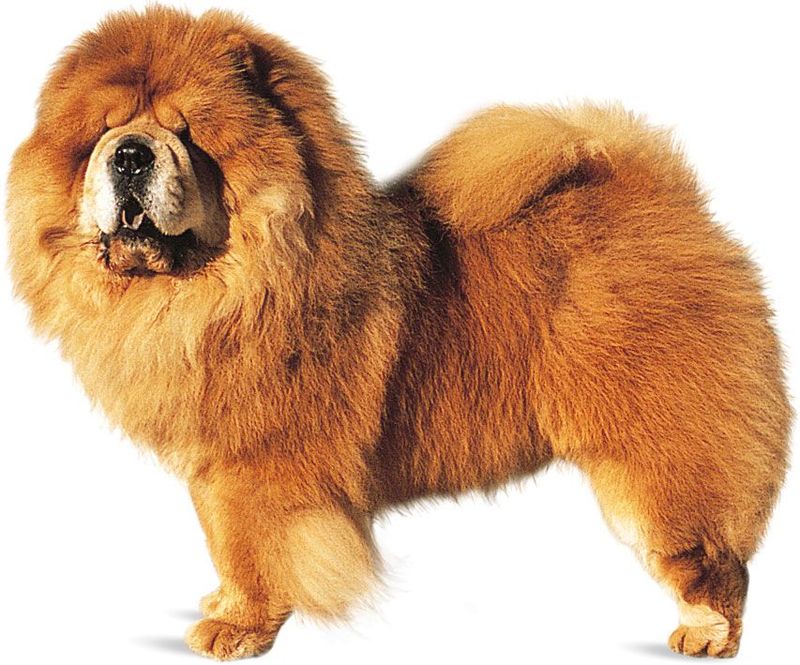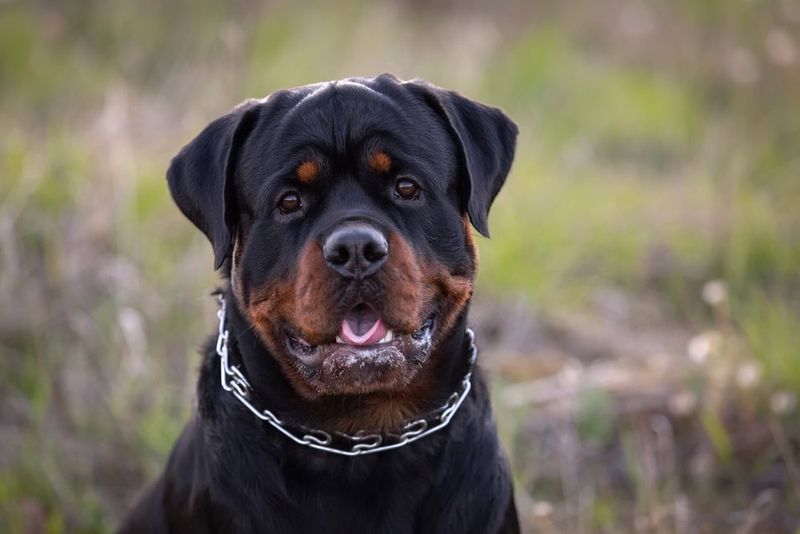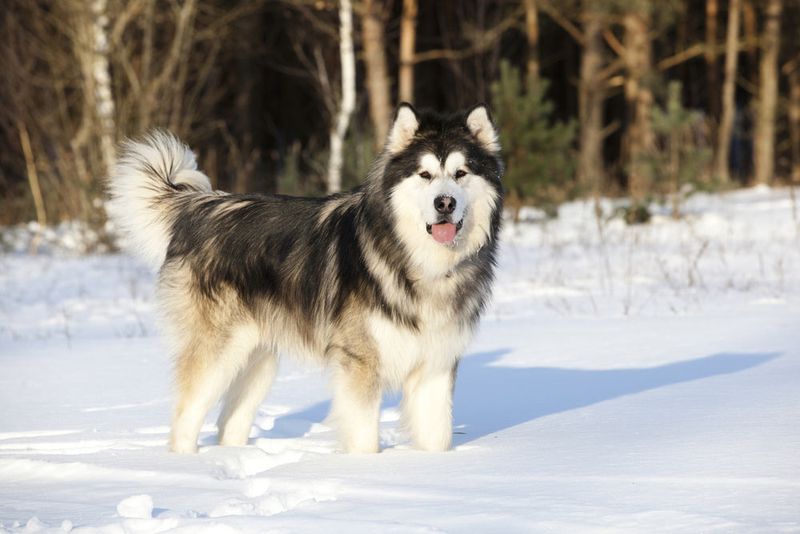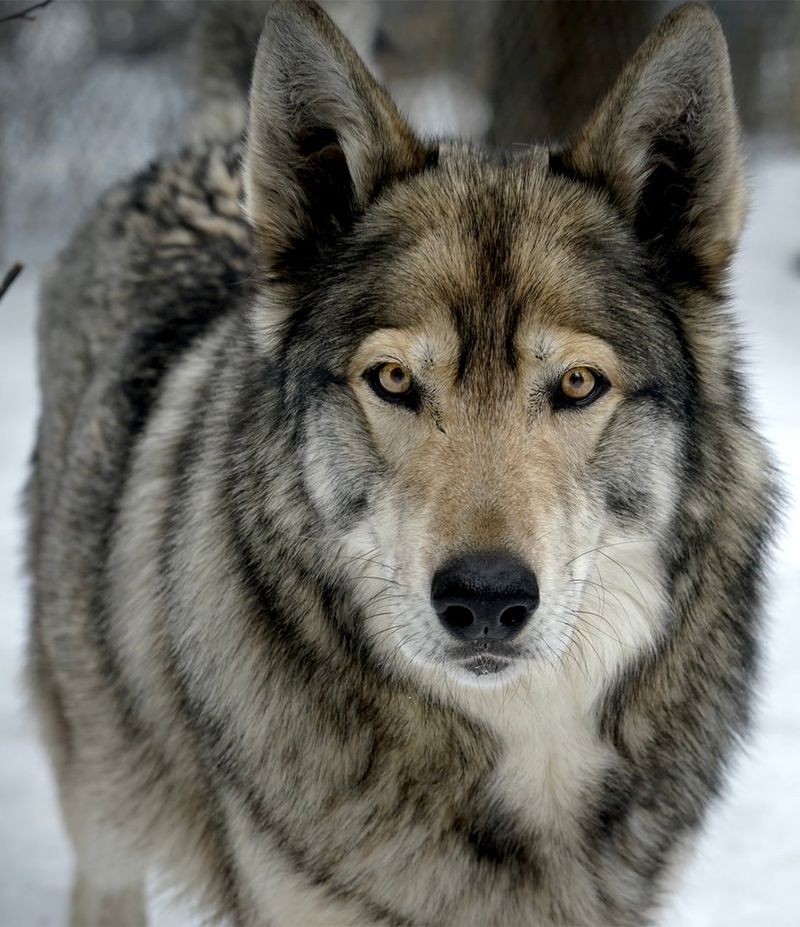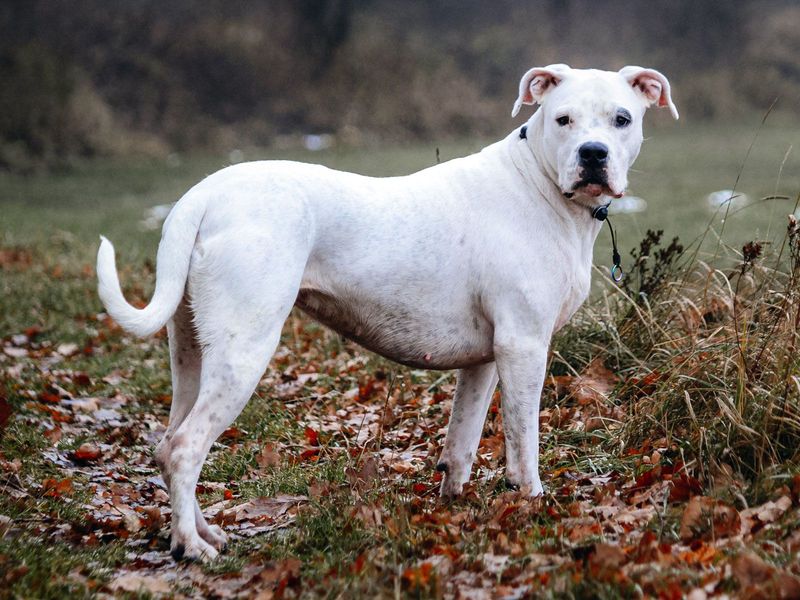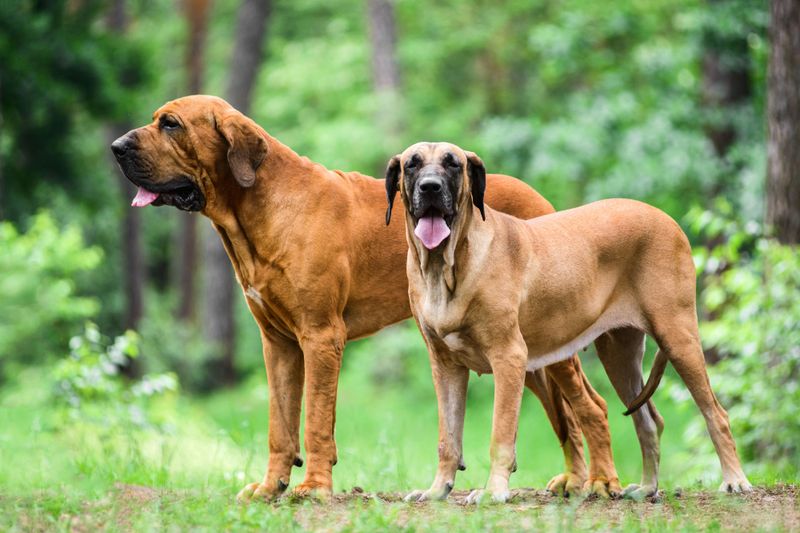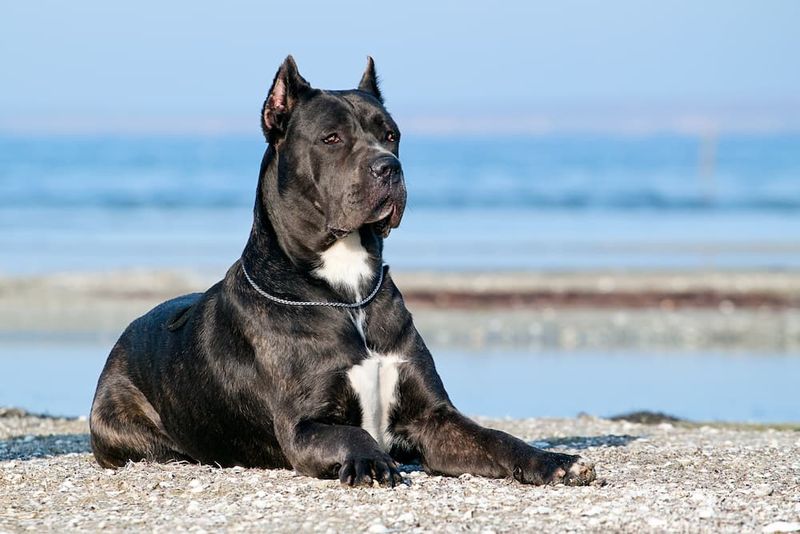Dog breeds are often celebrated for their unique characteristics, be it their loyalty, intelligence, or ability to guard. However, there are certain breeds that have been banned in various parts of the world due to concerns over their behavior and potential danger. This article explores 15 such breeds, shedding light on the reasons behind these bans, while aiming to provide a balanced view of each breed’s traits. Whether driven by fear, past incidents, or perceived aggressiveness, these bans spark much debate and discussion among dog lovers and policymakers alike.
Pit Bull Terrier
The Pit Bull Terrier, often spotlighted for its robust physique and unwavering loyalty, is a breed that polarizes opinions. Known for their strength and tenacity, these dogs are sometimes associated with aggressive behavior. Such perceptions have led to bans in certain regions.
However, advocates argue that responsible ownership and training can cultivate a loving and gentle companion. In areas with bans, community safety concerns often drive legislation, citing incidents involving attacks.
It’s essential to acknowledge the breed’s potential in the right hands, fostering understanding rather than fear.
German Shepherd
Praised for their intelligence and versatility, German Shepherds have served alongside humans in various roles. Despite their capabilities, they face bans in some areas due to concerns over their protective nature.
Their strong loyalty can sometimes be misinterpreted as aggression, leading to restrictions. These dogs thrive on mental and physical stimulation, reduced in environments lacking proper engagement.
Bans often stem from fears of attacks, yet many German Shepherds are devoted family pets. Education and training are key to unlocking their full potential without issues.
Doberman Pinscher
Doberman Pinschers, known for their elegance and alertness, are often seen as protectors. Their loyalty and strength make them ideal for security roles, but these traits also lead to bans in certain locales.
Their reputation for being fierce guardians sometimes overshadows their affectionate side. Proper socialization and training are crucial in nurturing their potential as loving pets.
Bans are usually based on incidents involving aggressive behavior, fueled by fear rather than understanding of their temperament. Responsible care can transform perception, focusing on their positive attributes.
Chow Chow
Chow Chows, with their distinctive appearance and aloof nature, often appear regal yet distant. Their independent demeanor sometimes leads to bans in places wary of their strong-willed character.
While they can be reserved, early socialization can help integrate them into loving family settings. Incidents of aggression are often linked to lack of training and understanding.
These bans highlight the need for education on breed-specific traits and responsible ownership. With proper care, Chow Chows can be affectionate companions, countering their misunderstood persona.
Rottweiler
Rottweilers, with their imposing stature and protective instincts, have been both revered and feared. Their history as guard dogs often sees them banned in some areas due to concerns over aggression.
Despite their reputation, many Rottweilers are gentle giants when raised in nurturing environments. Responsible ownership plays a critical role in shaping their behavior.
Bans often arise from misconceptions and incidents of attacks, overshadowing the breed’s loyal and affectionate nature. Understanding and proper training can mitigate risks, highlighting the importance of individual care.
Bullmastiff
Bullmastiffs, recognized for their size and protective instincts, are sometimes restricted due to their formidable presence. Their history as guard dogs can lead to perceptions of aggression.
Despite their intimidating looks, many Bullmastiffs are gentle and affectionate, especially with families. However, their strength requires responsible management.
Bans often arise from fears of attacks, overshadowed by incidents involving inadequate handling. Education on their nature and proper training can alter perceptions, emphasizing their loyal and calm demeanor.
Alaskan Malamute
Alaskan Malamutes, bred for endurance and strength, are sometimes banned due to concerns over their high energy and independence. Their love for adventure can be misconstrued as unruliness.
These dogs thrive in active settings, requiring mental and physical stimulation. Bans often result from misconceptions about their behavior, overshadowed by incidents of excessive energy.
With proper exercise and training, Malamutes can be affectionate companions, debunking myths of aggression. Understanding their needs fosters a more informed view, highlighting their playful and loving nature.
Siberian Husky
Siberian Huskies, known for their striking appearance and spirited nature, sometimes face bans due to their energetic disposition. Their independent streak is often mistaken for defiance.
Huskies thrive in environments that provide ample exercise and mental challenges. Misunderstandings about their behavior can lead to restrictions, fueled by incidents of escape or unruliness.
With the right guidance, they can be loyal and friendly pets, challenging the notion of aggression. Education on their unique traits promotes better understanding, focusing on their affectionate side.
Wolfdog Hybrid
Wolfdog Hybrids, a blend of domestic dogs and wolves, evoke fascination and fear. Their wild ancestry leads to bans, driven by concerns over unpredictability.
These hybrids can exhibit traits from both species, requiring experienced handling and understanding of animal behavior. Incidents of aggression are often associated with lack of proper care.
Bans highlight the complexities of integrating wild instincts into domestic settings, emphasizing the need for education. With the right environment, they can thrive, showcasing a unique blend of loyalty and independence.
Presa Canario
The Presa Canario, hailed for its strength and protective nature, often faces bans in places wary of its powerful build. Bred as working dogs, their demeanor can be misunderstood as aggressive.
These dogs require firm leadership and training to harness their potential as loyal family members. Bans often stem from incidents of aggression due to inadequate management.
Educating owners about their needs and temperament is crucial to dispel myths. With responsible care, Presa Canarios can be affectionate companions, offering protection and love in equal measure.
Dogo Argentino
Dogo Argentinos, bred for hunting, are sometimes banned due to their strength and assertive nature. Their imposing presence can be misperceived as aggression.
These dogs thrive in environments that provide leadership and activity. Bans often arise from incidents linked to their powerful instincts, overshadowing their loyal nature.
Responsible ownership and training are key to unlocking their affectionate side. Misunderstandings about their behavior highlight the need for education, promoting a balanced view of their capabilities and temperament.
Fila Brasileiro
The Fila Brasileiro, known for its strong protective instincts, faces bans in some regions due to concerns over aggression. This breed’s loyalty and dedication are unparalleled, yet their demeanor can be intimidating.
Proper socialization and training are essential to manage their territorial nature. Bans often stem from incidents where their protective instincts were misunderstood.
Responsible care can highlight their affectionate side, fostering a deeper understanding of their needs. Education on their traits emphasizes their potential as devoted companions, focusing on their nurturing qualities.
Japanese Tosa
The Japanese Tosa, a breed with a storied history in traditional dog fighting, faces bans due to its formidable strength. Their imposing presence can evoke fear, leading to misconceptions.
Contrary to their history, many Tosas are calm and gentle with proper upbringing. Bans often result from fears of aggression, overshadowing their loyal nature.
With responsible ownership and understanding of their traits, Tosas can be affectionate companions. Education on their history and needs is crucial to alter perceptions, promoting a balanced view of their capabilities.
American Bulldog
American Bulldogs, with their robust build and determined spirit, sometimes face bans due to concerns over their strength. Their protective instincts can be misinterpreted as aggression.
These dogs thrive in environments that offer guidance and activity, reducing misunderstandings about their behavior. Bans often arise from incidents linked to their powerful nature.
Proper training and socialization are key to showcasing their affectionate side. Understanding their traits and needs fosters a balanced view, promoting their potential as loyal companions with a gentle heart.
Cane Corso
Regal and commanding, the Cane Corso, with its origin in Italy, often finds itself under scrutiny. Known for its protective instincts, this breed demands respect and proper training.
Imagine a dog with both strength and elegance, the Cane Corso stands out with its imposing stature. However, this very characteristic has led to concerns about aggression, especially in areas unfamiliar with the breed’s needs.
Interestingly, the Cane Corso’s deep loyalty and intelligence, when harnessed properly, make it a remarkable companion. Yet, in places where it’s misunderstood, restrictions often apply, seeking to mitigate potential risks.
